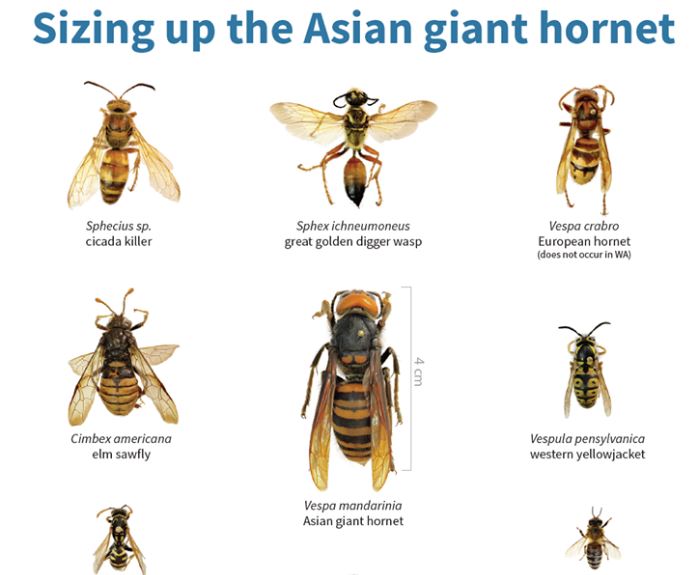Murder Hornets Arrive in United States
May 02, 2020
Murder hornets are here and they are looking to decimate the honey bee population in the United States.
A possible problem for the honey bee that we have covered several times already seems to be coming to fruition. The Asian giant hornet is reportedly here and if it is not controlled very quickly, some experts believe the honey bee could be all but extinct in less than five years. Formally known as the Vespa Mandarinia, it is quickly gaining the nickname of the “murder hornet.”
When compared to “normal” hornets, the size of this insect is not even close to other hornets in its class. Some might be as long, and some are close to being as wide, but no insect has quite the overall size of this hornet. The scary thing about this hornet is that it not only targets honey bees, but in Japan, where it is already present, more than four dozen people are killed by them every year.
The size of the hornet, roughly between 1.5 to 2 inches in length, makes it easy to spot, but so do the other features of the insect. It has a very large yellow-orange head with large eyes and its belly has black and yellow stripes. Washington State first confirmed its presence in December with four different sightings. It is not a huge presence, but it is one that must be thwarted as quickly as possible.
This insect did not get its nickname by accident, as it brutally attacks bees and leaves decapitated bodies in its wake. When the hornets spot a honey bee hive, they pick off the adult honey bees and rip off their heads. Then they enter the hive to eat the larvae and pupae. It takes only a few hornets to tear through a single hive, decimating it in a matter of hours.
There are now reports popping up all over the internet regarding this insect and how deadly it can quickly become to the honey bee population if the Asian giant hornet can set up roots here in the United States. I have seen numerous reports with experts saying if this threat is not removed within the next three years or so, the hornets could tear through the honey bee population throughout the country in a matter of years. The entire species of honey bee could be extinct within five years or so if this threat is not put down.
This new threat makes it quite apparent that our government needs to pay significantly more attention to the problems the honey bee is facing or our children could grow up in a world where we rely on machines to pollinate our plants and crops.
Source: CBS News
Photo via Washington State Department of Agriculture Facebook Page


.jpg)




